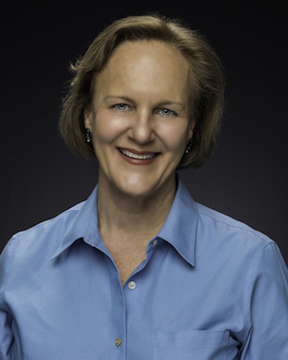Get help now
1.800.738.7328
Friday, May 5, 2017
The Brattleboro Retreat
8:30 AM - 4:00 PM

Margaret Buttenheim, PhD
Peggy Buttenheim is one of the brightest clinicians that I have encountered. As a presenter, she has a wonderful ability to make complicated ideas easy to understand. Her passion for her work is immediately apparent and is indeed contagious. Further, Peggy's understanding of the dynamics of relationships as well as her sensitivity and compassion to her clients is inspiring.
Carolyn Daitch, Ph.D. L.P. FMPA, FASCH
Director: Center for the Treatment of Anxiety Disorders
Author: Affect Regulation Toolbox, Anxiety Disorders: Go-to Guide Anxious in Love, Road to Calm Workbook
Imago therapy provides a theoretical conceptualization of the difficulties couples face in communicating and a therapeutic technique for addressing resignation and resentment. The primary technique is called Intentional Dialogue, a form of “talking on purpose,“ in contrast to the blaming, shaming, criticizing style that characterizes couples in conflict. Intentional Dialogue consists of four steps, mirroring, summarizing, validating, and empathizing. One partner speaks at a time about an agreed upon topic, and the partner who is designated the initial listener mirrors until the partner has no more to say. The listener summarizes, validates and empathizes with the speaker. Subsequently the partners change roles and repeat the process.
One of the reasons that Imago therapy is effective is that the theory normalizes marital conflict. As infants and then as dependent children we seek to survive and grow in uniquely imperfect families. Our original families are tolerant and encouraging of certain of our qualities and talents, and blind or even hostile to other aspects of our developing selves. In childhood we have no choice but to adjust our growing selves accordingly. We arrive in adulthood with all our delightful qualities, the ones that attracted our partners in the first place, as well as defenses that served us well in our original families, defenses that annoy our partners and make us unhappy. Imago therapy diminishes the shame couples feel when they bring their “bad” marriage or relationship to a therapist by insisting that conflict between intimate partners is inevitable and that, in fact, it is the best avenue for individual growth. Exploring conflict using Intentional Dialogue offers the opportunity for each partner to grow beyond the limited and constricted selves that we all bring with us from our original families and to commit ourselves to what Imago therapy refers to as a “conscious “ relationship.
In this one day workshop, Dr, Buttenheim will teach and demonstrate Intentional Dialogue and offer participants several opportunities to practice Intentional Dialogue with each other. She will present two aspects of Imago theory that underlie Imago clinical practice, a theory of individual development and a theory of the life cycle of a committed partnership. Participants will learn new techniques to use with couples who are in despair about the inevitable conflict that arises as they seek to be intimately committed to another person. This workshop is not an alternative to becoming a certified Imago therapist, but it will offer attendees new skills and demonstrate the value of training in Imago therapy.
Learning Objectives:
At the end of this presentation, participants will be able to:
© 2014 Brattleboro Retreat | Privacy Policy | Disclaimer | Sitemap | Hospital Report Card | Directions | FAQs | Contact